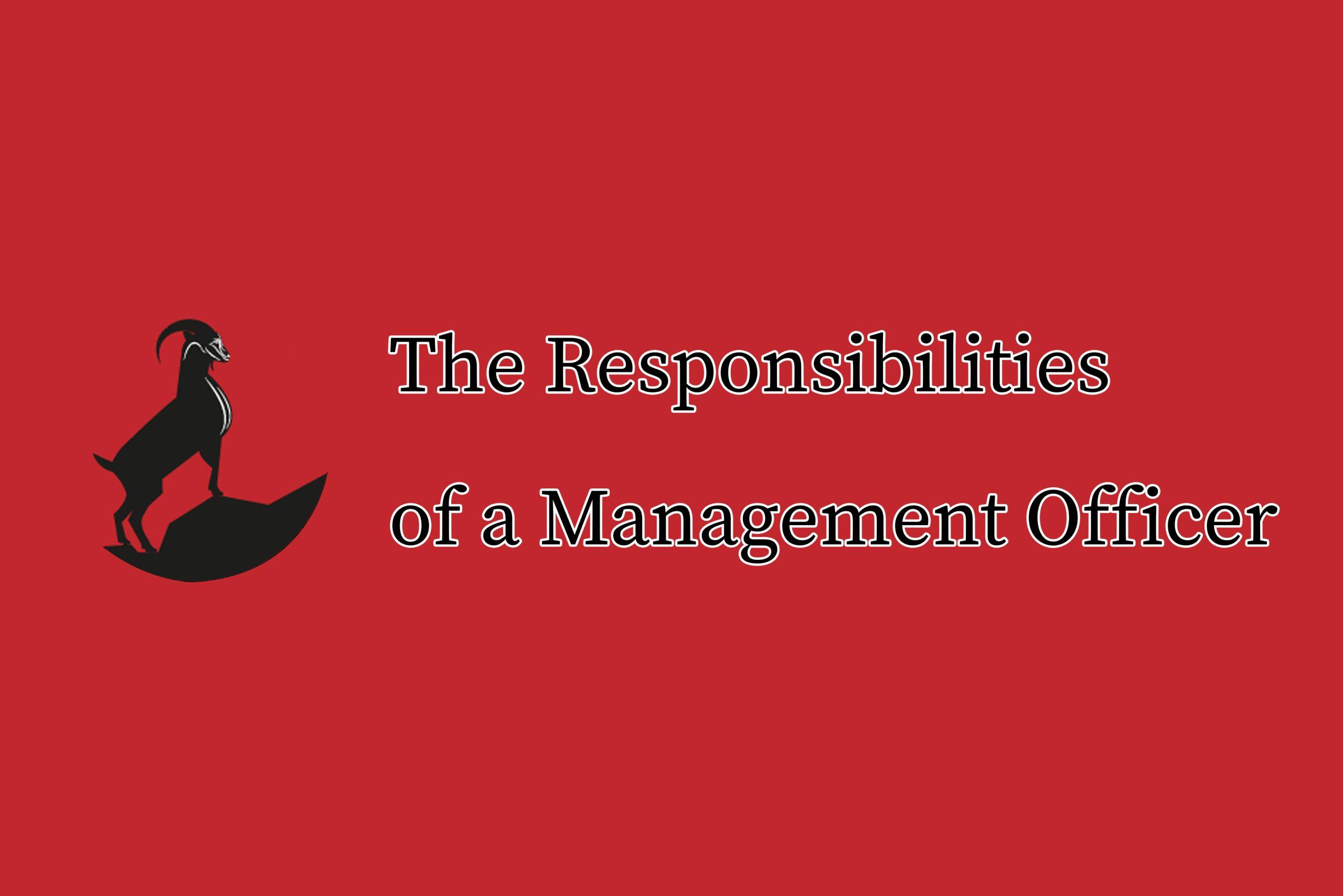
A management officer manages and organizes a company’s operations to ensure smooth and successful functioning while meeting goals and objectives.
Responsibilities:
What is the role of a Management Officer?
A management officer’s functions and responsibilities vary based on the organization’s size, industry, and structure. However, some typical responsibilities include budget management, personnel supervision, policy and procedure implementation, data analysis, and strategy planning.
Skills
Leadership: Developing Effective Management
Valuable management capabilities encompass the capacity to delegate, inspire, and talk effectively. Other management trends encompass honesty, confidence, commitment, and creativity. In IT, executives are regularly required to be jacks of all trades.
Financial Management: Ensuring Fiscal Responsibility
Financial management is a critical aspect of a management officer’s role. They must manage budgets, analyze financial reports, and ensure fiscal responsibility. Financial management involves budgeting, forecasting, financial analysis, and risk management.
Human Resource Management: Developing and Managing Talent
HR performs more than one role in an organization. It handles worker relationships, expertise acquisition, onboarding, Payroll, and lots more. One such critical obligation is skills management, which is an important thing to maintain your corporation’s push toward its goals.
OR
Human aid control is the strategic method for nurturing and helping personnel and ensures a tremendous place of business environment. Its capabilities range throughout extraordinary companies and industries however generally consists of recruitment, reimbursement and benefits, education and development, and worker relations.
Operations Management: Ensuring Efficiency and Effectiveness
The predominant features of operations control are growing powerful processes, making sure manufacturing is green, and figuring out the maximum cost-powerful manner to acquire goals. Operations managers assist in arranging sources the usage of sound HR concepts, the proper era, and up-to-date first-rate practices
Visions and goals for long-term success in strategic management.
Performance dreams of an organization, are supposed to be executed over a length of 5 years or more. Long-time period targets commonly encompass particular upgrades inside the organization’s aggressive position, generation leadership, and profitability; go back on investment, worker members of the family and productivity, and company image.
Conclusion: The Importance of Management Officers
Finally, management officials are crucial in ensuring that organizations function efficiently and successfully. They must be able to do a variety of tasks, including leadership, handling finances, administration of human resources, operations administration, and planning for strategy. In today’s fast-paced company climate, competent leadership officers are critical for attaining organizational success and generating development.
If you are seeking work, simply click on the link https://yabakri.com/jobs/.and you will be presented with an endless number of options.
FREQUENTLY ASKED QUESTIONS
What words would you use to define your management style?
I accept this as true in fostering supportive and inclusive painting surroundings wherein crew individuals feel valued and motivated. I inspire open communication, delegate duties effectively, and offer steerage and assistance while needed.
Can you give an example of a challenging situation you experienced as a manager and the way you handled it?
To remedy this issue, I scheduled common crew conferences to supply updates, speak about issues, and inspire open communication. To solve this issue, I scheduled frequent team meetings to deliver updates, discuss issues, and encourage open communication. I also gave additional training and tools to my employees to help them through the shift. We effectively handled the adjustment together by encouraging transparency and providing assistance.”
How do you prioritize duties and manipulate them slowly and efficiently as a control officer?
Sample answer: “To prioritize tasks and manage my time effectively, I use a combination of time management techniques such as creating to-do lists, setting clear goals and deadlines, and utilizing tools like calendars and project management software. I also communicate with my team to ensure alignment on priorities and delegate tasks when appropriate.”
How do you resolve issues inside or across teams?
When conflicts arise inside a team, I opt to cope with them quickly and directly. I promote open communication among team members to comprehend diverse points of view and work together to find solutions. If required, I will mediate talks and seek common ground to arrive at a mutually beneficial solution.”
How do you inspire and drive your team to reach their objectives?
“I believe in motivating and inspiring my team by setting clear expectations, providing regular feedback and recognition for their accomplishments, and creating a positive work environment,” as an example of a solution. I provide professional growth opportunities, establish a sense of ownership and autonomy, and recognize individual and team accomplishments.”
How do you cope with tight cut-off dates or high-strain situations?
Sample answer: “In high-stress conditions or whilst confronted with tight deadlines, I continue to be calm and focused. I prioritize tasks based on urgency and importance, delegate responsibilities when possible, and communicate with stakeholders about any necessary adjustments or extensions. I also ensure that my team has the necessary resources and support to meet the deadlines effectively.”

